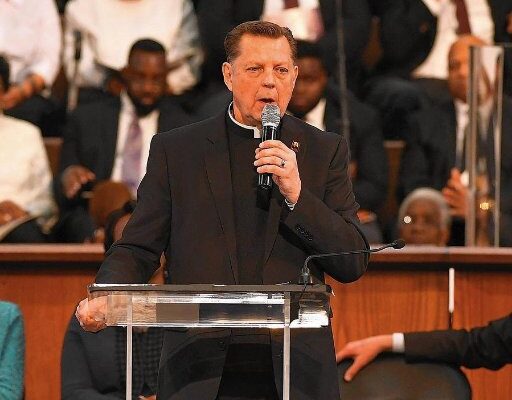CHICAGO (IL)
Horowitz Law [Fort Lauderdale FL]
March 8, 2021
There are many answers to this seemingly simple question about why it takes decades for many sexual abuse victims to come forward to tell their truth. Today, we want to explain just one of them.
Just recently, we at Horowitz Law drew attention here to the two child sex abuse reports against a high-profile Illinois priest, Fr. Michael Pfleger.
Now, that cleric faces a third accuser.
Unlike the first two accusers, this new one involves what was then an 18 year old, not a child under the applicable state law.
And unlike the first two accusers, this new one isn’t seeking a nickel.
Listen to what prompted the third accuser to speak up now, some 40 years after Fr. Michael Pfleger reportedly gave him marijuana and liquor beginning when he was 15 years old.
Fr. Pfleger was suspended by Chicago archdiocesan officials in January. Butfor the last few weeks, his well-intentioned, loyal parishioners have been very outspoken about their belief that Fr. Pfleger is innocent.
In the wake of this, the priest’s third accuser told Chicago media: “When I heard Fr. Pfleger’s supporters attacking the other victims and saying Father Mike could do never do this, I knew I had to come forward and tell the truth. Hopefully, my experience will add to their credibility and encourage other victims to come forward.”

The accuser isn’t seeking compensation and he says will cooperate with the Archdiocese of Chicago’s investigation into Fr. Pfleger,
We at Horowitz Law know men and women who have done exactly this – broken years of silence and shared deep suffering – because they too want the abuse to stop and the wrongdoers to be exposed. They’ve reluctantly filed police reports, contacted prosecutors, called church staffers and even spoken publicly, because they feel it’s their duty, especially when other victims are being attacked.
It’s hard. It feels risky. But it’s the noble and brave thing to do. We are proud of every single person who has overcome their fears to help others.
There are a few lessons here for both church officials and church members. It’s in the self-interest of both to be careful when they
— claim that accusers are ‘greedy’ or vengeful’ and
— use hardball tactics, legal and otherwise, to try and foster a climate of fear.
These tactics can backfire. They can inspire rather than deter other victims. They can make witnesses and whistleblowers feel duty-bound to speak up.
It’s no coincidence, we suspect, that the third accuser came forward after lay leaders of Fr. Pfleger’s parish said they will no longer send the church’s $100,000-per-month offerings to the Archdiocese, hoping that will force the church officials to expedite its investigation into Pfleger.
Pressuring Catholic staffers to short-circuit an abuse report, we believe, is morally wrong. And again, it may well prompt others to break their silence because they’re angry or upset at such hard-ball tactics.
